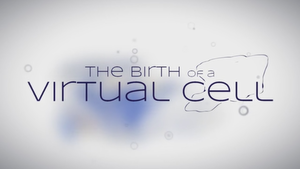Information
- Publication Type: Miscellaneous Publication
- Workgroup(s)/Project(s):
- Date: 2017
- Note: submitted to the Pacific Vis 2017 Storytelling Contest
Abstract
In our current research project, we are working on the interactive visualization of cellular data at multiple scales. The visual story telling contest motivated us to describe the process of bringing this complex volumetric data "to life". We scripted the visual story directly within the current build of our multi-scale visualization. The entire video is therefore rendered in real time. This enabled us to directly show the steps involved in the rendering of our final visualization based on the actual data and the actual algorithms that are applied. The various effects in the video are therefore parameter variables for existing multi-scale visualization functions that change over time. The final result of our visualization was inspired by a rendering of the reference 3D model that was created by a scientific illustrator. The challenge that we overcome in our visualization was to create a rendering of the original data at stable 30 frames per second that matches the offline rendered illustration in visual quality, which helps to clarify the complex 3D arrangements of the inner components of the cell.Additional Files and Images
Weblinks
BibTeX
@misc{mindek-2017-virtualcell,
title = "The Birth of a Virtual Cell",
author = "Peter Mindek and Johannes Sorger and David Kou\v{r}il and
Tobias Klein and Graham Johnson and Ivan Viola",
year = "2017",
abstract = "In our current research project, we are working on the
interactive visualization of cellular data at multiple
scales. The visual story telling contest motivated us to
describe the process of bringing this complex volumetric
data "to life". We scripted the visual story directly within
the current build of our multi-scale visualization. The
entire video is therefore rendered in real time. This
enabled us to directly show the steps involved in the
rendering of our final visualization based on the actual
data and the actual algorithms that are applied. The various
effects in the video are therefore parameter variables for
existing multi-scale visualization functions that change
over time. The final result of our visualization was
inspired by a rendering of the reference 3D model that was
created by a scientific illustrator. The challenge that we
overcome in our visualization was to create a rendering of
the original data at stable 30 frames per second that
matches the offline rendered illustration in visual quality,
which helps to clarify the complex 3D arrangements of the
inner components of the cell.",
month = apr,
note = "submitted to the Pacific Vis 2017 Storytelling Contest",
URL = "https://www.cg.tuwien.ac.at/research/publications/2017/mindek-2017-virtualcell/",
}


